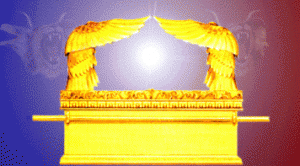HOMILY WEEK 17 04 – Year I
Living Tabernacles and Mutual Indwelling
(Ex 40:16-38; Ps 84; Mt 13:47-52)
*********************************************
The readings invite us to be tabernacles of God’s presence in the world as we dwell with God and God with us in Christ.
When our pilgrim group was in the Holy Land, we were able to visit Shiloh, where the Israelites first built a semi-permanent tabernacle after 39 years of wandering in the wilderness with a portable one, described in the first reading from Exodus today. The uniqueness of this event underpinning all of Judaism, and our Judeo-Christianity, is worth studying more closely.
 Moses was instructed by God to set up a tabernacle “on the first day of the month.” To properly understand this, we should think of a that tabernacle as a “portable chapel.” In that chapel (tabernacle) Moses placed the ark (a tabernacle to us) containing the covenant (the Dabar, Words of God, Ten Commandments). This would be the reserved Eucharist for us today. Above the ark he placed the mercy seat, a very interesting feature with two cherubs guarding an empty space in between them, which I believe is really where God was considered to dwell. Think of a monstrance today.
Moses was instructed by God to set up a tabernacle “on the first day of the month.” To properly understand this, we should think of a that tabernacle as a “portable chapel.” In that chapel (tabernacle) Moses placed the ark (a tabernacle to us) containing the covenant (the Dabar, Words of God, Ten Commandments). This would be the reserved Eucharist for us today. Above the ark he placed the mercy seat, a very interesting feature with two cherubs guarding an empty space in between them, which I believe is really where God was considered to dwell. Think of a monstrance today.
Then Moses was commanded to set up a curtain to screen this whole set-up, a precursor to the heavy curtain in the later temples separating the Holy of Holies from the rest of the temple. Finally, the glory of the Lord filled the tabernacle (chapel) so much so that Moses was not able to enter the “tent of meeting” because of the cloud and the glory or shekinah of the Lord. Apparently all this was placed within that tent of meeting where God spoke to Moses “face to face.”
Finally, a cloud was on the tabernacle by day and a column of fire by night, and whenever they were “taken up from the tabernacle” the Israelites would continue their journeying through the wilderness, guided by that cloud and fire (think sanctuary lamp today).
What we have here is an extra-ordinary spirituality setting the Israelites apart from other nations – an intimate relationship with God who dwelt among them and journeyed with them on a daily basis. They were to respond to that presence by being an icon of who God is on earth, to draw all peoples to this loving although also fearsome God.
Faith is more than passively trusting in God – it is actually believing that God can do miracles. Martha, in the gospel of John, can help us understand this type of faith. She came to believe that Jesus could do anything, and she told him so. We can do that too, by asking God for help in a challenging situation. We can ask God for a miracle – healing of a love one, the conversion of a friend or family member, a new job. Ask in confidence, but also trust that Jesus in his wisdom will answer our prayer in the best way possible. Exercising our trust and faith like this will help us grow closer to Jesus.
The Eucharist is really the mercy seat, that place where God dwells with us and within us, where we experience the mercy of God as forgiveness and healing through word and sacrament.
May our celebration make us living tabernacles mutually indwelling with God, and empower us to be true icons of God on earth, drawing all people back to the Father through Jesus Christ the Son, in the Holy Spirit, with Mary our spiritual Mother.



